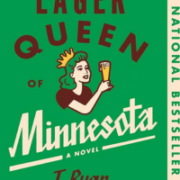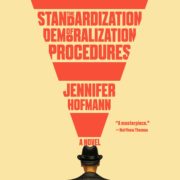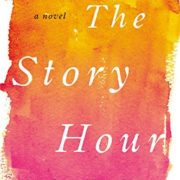The Plot by Jean Hanff Korelitz
Character-driven versus plot-driven stories: Readers of literary fiction often claim the former while just about everyone else stakes the latter. (Just look at the bestseller lists.) But they are not mutually exclusive, of course. You can have both. One fairly recent example where varied readers said, “You have to read this,” to other readers would be Gone Girl, the plot a bucking bronco of she said/he said. Twin this with its strong character development, and you can count literary fiction readers among the beguiled.
I’ll add to that an example from this very year, fittingly titled The Plot by Jean Hanff Korelitz. The novel centers around Jacob Finch Bonner, a literary novelist who peaked early in his career. His first book actually made it into The New York Times Book Review. But his second—and then his third—book tanked, leaving this once “young and upcoming” novelist neither young, nor upcoming. He doesn’t even have a literary agent anymore.
Still “theoretically (as opposed to actually) working on’’ a current novel, he agrees to teach (strictly for money, doubtless) a writing workshop at some never-heard-of MFA school (Ripley). Anyone can sign up, and anyone does. Even the most earnest of students run the gamut, as in “the guy who’d wanted to correct Victor Hugo’s ‘mistakes’ in a new version of Les Misérables and the woman who’d conjured the indelible non-word ‘honeymelons.’”
Then there is Evan Parker, a student who appears to have never read a story, let alone aspired to write one. He’s a flat-out jerk who clearly doesn’t want Bonner’s advice. He’s there, he finally discloses to Bonner, to make connections that will lead to his finding a literary agent who will then, in turn, help him secure a book deal on the novel he’s writing. Bonner, in disbelief of all this, tries to convey how unlikely this is, especially since he won’t share any of his writing.
Parker’s unfazed, because the plot of his novel is a “sure thing.” He reluctantly acquiesces and allows a few pages to be read. Bonner inwardly concedes that this guy can write. It’s not great, but neither is it hackneyed. Then Parker unpacks the plot, and Bonner is stunned: The plot is amazing.
The workshop ends and Bonner moves on to other side gigs that are becoming less “side” than “main” because he has all but ceased writing. He creates a website “touting his editorial skills,” and it does not go well. “The writing he encountered in this new role of online editor, coach, and consultant (that marvelously malleable word) made the least of his Ripley students seem like Hemingway.”
A few years pass and Bonner wonders what became of Parker and his “sure thing.” After some online investigating, he learns that not only does the novel remain unpublished, but that Parker has died. And this is the moment, the crossroads. This amazing plot is now authorless. You can almost feel the rush of euphoria surge through Bonner as he justifies his decision. How can he deny a plot that needs a writer? Ignoring it is not an option; it would forever gnaw at him, at any true writer. And are not new stories mere retellings anyway? “Miss Saigon from Madame Butterfly. The Hours from Mrs. Dalloway. The Lion King from Hamlet, for goodness’ sake!” He was given an “urgent, shimmering thing,” so he, the literary writer, must write it.
Once published, Bonner’s book becomes every bit the success he hoped. Straight to the top of the bestseller list. Oprah blesses it. His appearances and readings now fill auditoriums. (He no longer has to suffer through the indignity—as he did during his earlier books—of having only his parents show up at a reading.)
He’s living the successful writerly life he has always wanted. Yet he’s terrified. At any moment someone could stand up during a reading and yell out that he is a fraud. And come it does, the allegation, via an anonymous email: “You are a thief.”
To say any more about what happens next would be criminal. (I will say: It’s engaging.) Stephen King has a blurb on the jacket calling it “Insanely readable.” I’m not quite sure what he means by that, but I’ll agree. And it’s more than the plot. Korelitz made Bonner a curious joy to spend time with. He’s pleasant enough on the outside but sardonic on the inside. To wit: Before his fame—and while teaching—he expresses to a colleague who teaches poetry that he wished he read more poetry. In reality: “He didn’t, actually, but he wished he wished he read more poetry, which ought to count for something.” After he’s famous, and after yet another bloke says to him, “My wife read your book,” Bonner thinks, “Five monosyllabic words, speaking volumes.”
Bonner’s genial affect belies his inner turmoil. But even if there wasn’t something weighing on his conscience during the height of his book’s success, I can’t see that he would be much happier. Not as stressed, sure. But adulation only goes so far. An old cliché fits Bonner perfectly: Be careful what you wish for, you might just get it.











